How an ERP Solution Can Transform the Healthcare Industry
The healthcare industry runs on information. Hospitals, clinics, and diagnostic centers manage thousands of records, bills, and reports every single day. When data is scattered across departments, delays and mistakes happen, and that affects both operations and patient care.
That’s why many healthcare providers are switching to a modern ERP solution. It connects departments, automates workflows, and turns raw data into clear insights that decision-makers can act on instantly.
Why the Healthcare Industry Needs an ERP Solution
Healthcare institutions are more data-heavy than ever. There are patient records, lab results, insurance claims, supplier details, financial transactions, and employee schedules. Most hospitals still use separate systems for each department. These disconnected tools make it hard to get a full picture of what’s happening.
An ERP solution brings everything together. It acts like a central nervous system for the hospital, connecting patient information, accounting, HR, pharmacy, and supply chain in one place. This reduces duplication, improves communication, and helps every department work with the same real-time data.
The result is a smoother workflow, fewer errors, and faster service. When staff have access to the right data at the right time, patients receive better and quicker care.
How ERP Software Changes Daily Hospital Operations
Healthcare workers spend more time managing data than treating patients. Appointment scheduling, patient registration, billing, and discharge take up valuable hours. A healthcare ERP system automates most of these tasks.
When a patient books an appointment, the system automatically updates the doctor’s schedule, assigns a room, and alerts the pharmacy if medication might be needed. During treatment, doctors can access a patient’s medical history in seconds without flipping through paper files. Billing happens automatically once treatment details are entered.
The hospital runs faster, the staff feels less pressure, and patients spend less time waiting. That’s the real value of an ERP solution for hospital management.
Financial Clarity and Cost Control Through ERP
Hospitals deal with high costs, delayed insurance claims, and multiple payment systems. It’s hard to track where money is going without a unified financial system.
An ERP solution for healthcare finance gives administrators a clear view of expenses, income, and outstanding payments. Automated billing reduces human error. Revenue reports can be generated in real-time to spot inefficiencies early.
For instance, if a department is overspending on medical supplies or duplicate tests, the ERP dashboard shows it immediately. This level of visibility helps management make better financial decisions and control costs without affecting patient care.
Hospitals that use ERP software often report savings in both time and operational costs within the first year of use.
Inventory Management That Works in Real Time
A hospital can’t afford to run out of medicine or surgical equipment. On the other hand, overstocking ties up funds and leads to wastage when items expire.
An ERP system for hospital inventory management tracks stock in real-time. It knows what’s available, what’s about to expire, and when to reorder. It can even predict usage trends based on past data. For example, if flu season is approaching, the ERP can automatically increase orders for related medicines and supplies.
This predictive capability helps hospitals avoid both shortages and excess. It keeps operations stable and improves budget planning.
Data Security and Compliance Are Built In
Healthcare data is private and sensitive. Losing it or exposing it can lead to legal trouble and loss of trust. Modern healthcare ERP software comes with advanced security tools like role-based access, encrypted storage, and automatic backups.
Only authorized staff can access specific information. For example, financial data stays within the accounts team, and medical records remain confidential between doctors and nurses. Audit trails record every action, making compliance with data protection laws simpler.
Cloud-based ERP systems also keep data safe during outages or disasters, allowing hospitals to recover information quickly.
Better Patient Care Starts With Better Data
Every patient wants personalized care. That’s only possible when doctors have complete, up-to-date information.
With an ERP solution for patient management, all records such as medical history, lab results, prescriptions, and billing, are stored in one place. When a patient visits again, the doctor can instantly view their entire medical background and previous treatments.
This not only improves diagnosis accuracy but also helps in preventive care. For instance, an ERP can flag patients due for follow-up visits or tests, helping hospitals stay proactive. Patients feel more valued when communication is clear and care feels organized.
How ERP Systems Improve Staff Management
Healthcare runs 24/7, which means managing shifts, overtime, and payroll can get complicated. ERP software simplifies all of this.
It automates attendance tracking, calculates payroll accurately, and even helps HR teams with recruitment and performance reviews. Managers can see staff availability in real time and allocate duties more efficiently.
For example, if a nurse calls in sick, the system can quickly identify available replacements and adjust schedules without confusion. This keeps operations running smoothly without overloading the team.
Data-Driven Decisions With ERP Analytics
One of the least discussed but most powerful aspects of an ERP solution is analytics. Healthcare leaders can see key data in visual dashboards — from patient inflow to revenue performance.
This data helps identify bottlenecks and trends. For instance, if patient discharge times are increasing, ERP analytics can show which department or step is causing the delay.
Some ERP systems even use predictive analytics to forecast demand for certain services, helping hospitals plan better staffing and resource allocation. This kind of insight-driven management is what separates growing healthcare organizations from those stuck in old systems.
Integrating Telemedicine and Digital Health Tools
Telemedicine and wearable devices are changing how patients interact with healthcare providers. ERP systems can integrate with these technologies to create a seamless digital ecosystem.
A teleconsultation can be recorded in the ERP automatically, the prescription sent directly to the pharmacy module, and the billing generated instantly.
This kind of ERP integration with telehealth improves accessibility for patients who live far away and gives healthcare providers accurate, centralized data from both in-person and online visits.
Common Challenges and How to Overcome Them
Implementing an ERP in healthcare can seem overwhelming. The biggest challenges are data migration, staff training, and process alignment.
The best approach is to start small – perhaps with finance or inventory and then expand to other modules. Choosing a flexible, customizable ERP solution for healthcare organizations makes this easier.
Training staff gradually also increases adoption and reduces errors. When the ERP fits existing workflows instead of forcing new ones, transition becomes smooth.
Future of Healthcare with ERP Systems
The future of healthcare lies in automation, real-time insights, and connected systems. ERP software is evolving fast, with features like AI-assisted analytics, IoT device integration, and cloud mobility.
In the coming years, ERP will not only manage data but also help predict patient outcomes, automate administrative approvals, and support personalized care at scale. Hospitals that adopt ERP early will have a major advantage in efficiency and patient satisfaction.
Transform Your Healthcare Operations with Finac ERP
Healthcare success depends on coordination, accuracy, and trust. Finac ERP is built to handle the specific needs of hospitals, clinics, and medical institutions. It simplifies workflows, keeps data secure, and improves every part of your operations — from patient management to financial planning.
If you want your healthcare organization to grow smarter, faster, and more efficient, it starts with the right ERP solution.
Get in touch with Finac ERP today to explore how our system can simplify your daily operations and help you deliver better care with confidence.

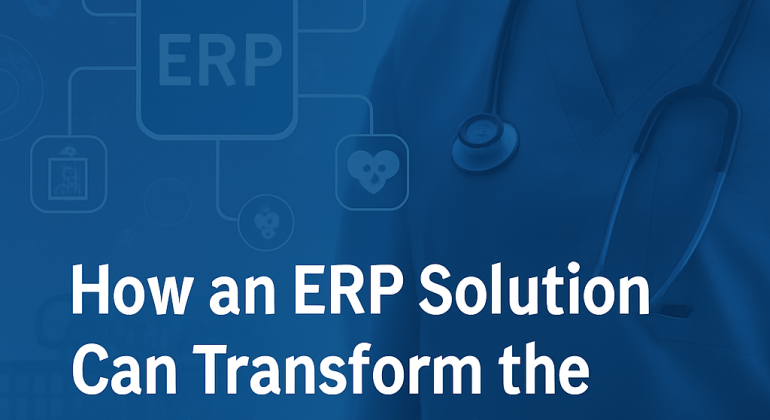
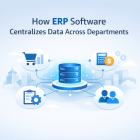
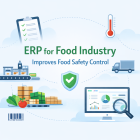
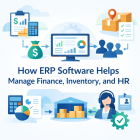
Recent Comments